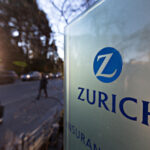In an opinion that could inform coronavirus business interruption claims now before various courts, a federal appeals court has ruled that a Florida restaurant is unable to collect on its insurance for business interruption losses that it says were caused by dust and debris from nearby road construction that began in 2013.
The court backed the insurer’s denial of insurance payments because, although the restaurant had to clean its premises, it did not suffer any “direct physical loss of or damage to” its property.
U.S. District Judge R. David Proctor, writing for the 11th Circuit Court of Appeals, concluded that under Florida law, “an item or structure that merely needs to be cleaned has not suffered a ‘loss’ which is both ‘direct’ and ‘physical.'”
The appeals court ruling against the plaintiff upheld a ruling by the U.S. District Court for Southern Florida in favor of Sparta Insurance Co., against the plaintiff, Mama Jo’s (doing business as Berries).
Florida attorney Joseph Miele expects the opinion will have an impact on business interruption insurance claims against insurers by business policyholders seeking payment of losses due to the coronavirus. Insurers have been arguing that a virus and related business shutdowns do not cause direct physical loss or damage and thus do not trigger business interruption coverage.
Impact on Others
Miele, an insurance coverage partner at Kaufman Dolowich & Voluck in Ft. Lauderdale, said insurers have cited the district court’s decision in business interruption cases across the country and the fact that now a federal court of appeals has embraced that view further supports insurers’ arguments.
Miele said another important consideration is the court’s reasoning that the plaintiff did not meet its initial burden of bringing the claim within the coverage of the policy.
“It is a fundamental principle of insurance law that once this burden is met, the burden of proof shifts to the insurer to prove an exclusion,” he explained. “Under the reasoning of Mama Jo’s, an insurer never gets to that step. This will streamline resolution of these cases by eliminating protracted litigation over the various exclusions that could also apply to preclude coverage.”
The Case
The plaintiff, Mama Jo’s, operated a restaurant at a Miami location where, from December 2013 until June 2015, there was roadway construction in the general vicinity of the eatery. The plaintiff claimed that during that time, dust and debris generated by the construction migrated into the restaurant, requiring it to perform daily cleaning using its normal cleaning methods, employing dust pans, hoses, rags, towels and blowers.
Although the restaurant was able to serve the same number of customers as it had before the construction began, customer traffic decreased during the roadwork.
The restaurant was insured by Sparta Insurance Co. under an “all risk” commercial property insurance policy. The policy included a Building and Personal Property Coverage Form and a Business Income (and Extra Expense) Coverage Form covering “direct physical loss of or damage to Covered Property . . . caused by or resulting from any Covered Cause of Loss.”
The policy’s business income form provides that Sparta will pay for the actual loss of business income sustained “due to the necessary suspension of operations during the period of restoration.'” The policy adds that the suspension must be caused by direct physical loss of or damage to covered property.
In April 2015, the plaintiff’s public adjuster sent the insurer a claim, including a preliminary damage estimate in the amount of $13,775.58 (after deductible) plus a business income loss claim in the amount of $292,550.84. The plaintiff contended that its 2014 sales were lower than expected compared to its rate of sales growth in previous years.
Sparta denied the claim because it was “not covered under the policy.” Sparta said that the proof of loss form the public adjuster provided did not reflect the existence of any physical damage and it was questionable whether a direct physical loss occurred. Sparta noted that coverage is provided for the actual loss of business income sustained due to the necessary “suspension” of “operations” during the “period of restoration.” The “suspension” must be caused by direct physical loss of or damage to property at the premises, the insurer told Mama Jo’s.
The plaintiff sued in Florida state court in May 2017. Sparta removed the action to the U.S. District Court for the Southern District of Florida.
In February, 2018, the plaintiff identified for the first time new categories of damages totaling $319,688.57 that it said were due to replacement of the restaurant’s awning and retractable roof systems, HVAC repairs, and replacement of the restaurant’s audio and lighting systems.
The plaintiff offered expert witnesses to support its damaged equipment claims. But the district court found that they did not prove that construction dust and debris generated in 2014 caused the “new” damages to the awnings, retractable roof, HVAC system, and audio and lighting system.
The lower district court also determined that the plaintiff’s initial claim for cleaning was not covered because property that must be cleaned, but is not damaged, has not sustained a “direct physical loss.” The district court concluded that direct physical loss refers to tangible damage to property, which causes it to become unsatisfactory for future use or requires repairs.
Finally, the district court decided that the claim for lower-than-expected sales in 2014 was not covered because the restaurant could not establish that it suffered a necessary suspension of its operations as the result of a direct physical loss.
The plaintiff unsuccessfully argued that the district court erred in concluding that direct physical loss does not include cleaning, but rather requires a showing that the property be rendered uninhabitable or unusable; in requiring the restaurant to show that a suspension of operations was the result of physical damage in order to establish business income coverage; and in dismissing the conclusions of its expert witnesses.
In its handling of the appeal, the 11th circuit court noted that in Florida, under the Daubert ruling, trial courts must act as “gatekeepers” and are tasked with screening out “speculative, unreliable expert testimony.”
The policy at issue is an “all risks” policy. However, as the Florida Supreme Court has noted, “an ‘all-risk’ policy is not an ‘all loss’ policy, and thus does not extend coverage for every conceivable loss,” Judge Proctor noted.
The appeals court concluded that the district court correctly granted summary judgment on the cleaning claim because, under Florida law, an item or structure that merely needs to be cleaned has not suffered a “loss” which is both “direct” and “physical.”
As to the business income loss claim, the claimant had not shown it suffered a “suspension” of operations nor did it put forward any evidence that it suffered a direct physical loss of or damage to its property during the policy period. Therefore, the appeals court said the district court’s entry of summary judgment on the business income loss claim was also proper.
The plaintiff argued that the district court ignored evidence that it had been required to close sections of the restaurant for cleaning. Conceivably, the appeals court noted, a slowdown caused by closing parts of the restaurant for cleaning could be attributed to a “period of restoration.” But, even if the district court got this part of the analysis wrong, Sparta was still entitled to summary judgment on the business income claim because any “‘suspension’ must be caused by direct physical loss of or damage to property.” The plaintiff failed to show it suffered a “direct physical loss.”
Insurance coverage attorney Miele said that the fact that the restaurant remained open during the period of construction will likely be argued against the rationale of Mama Jo’s. However, he does not believe this difference would have compelled a different result. “The typical scenario in COVID claims is that the businesses closed by governmental order with no showing of the presence of COVID. But, even if that showing were to be made, like in Mama Jo’s, the ‘remedy’ is sanitizing the property,” he said.
The opinion is Mama Jo’s, Inc. v. Sparta Insurance Company.
Topics USA Carriers Florida Profit Loss Claims Property Construction
Was this article valuable?
Here are more articles you may enjoy.



 AI Lost Out to Traditional Models in Forecasting NYC’s Blizzard
AI Lost Out to Traditional Models in Forecasting NYC’s Blizzard  Zurich Insurance Said to Near Beazley Deal Funded by Equity Sale
Zurich Insurance Said to Near Beazley Deal Funded by Equity Sale  Commercial P/C Market Softest Since 2017, Says CIAB
Commercial P/C Market Softest Since 2017, Says CIAB  Cuts to Funding Mean Risks Will Pivot in Human Services Market
Cuts to Funding Mean Risks Will Pivot in Human Services Market 

